Tinker & Estes Lab and Santa Cruz Field Station
| Home |
| Current Research |
| Graduate Students / Post Docs |
| Biologists / Technicians |
| Interns / Volunteers |
| Publications |
| Links |
| Our ftp site |
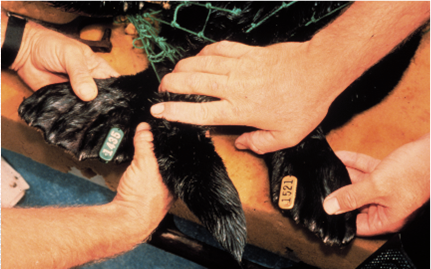
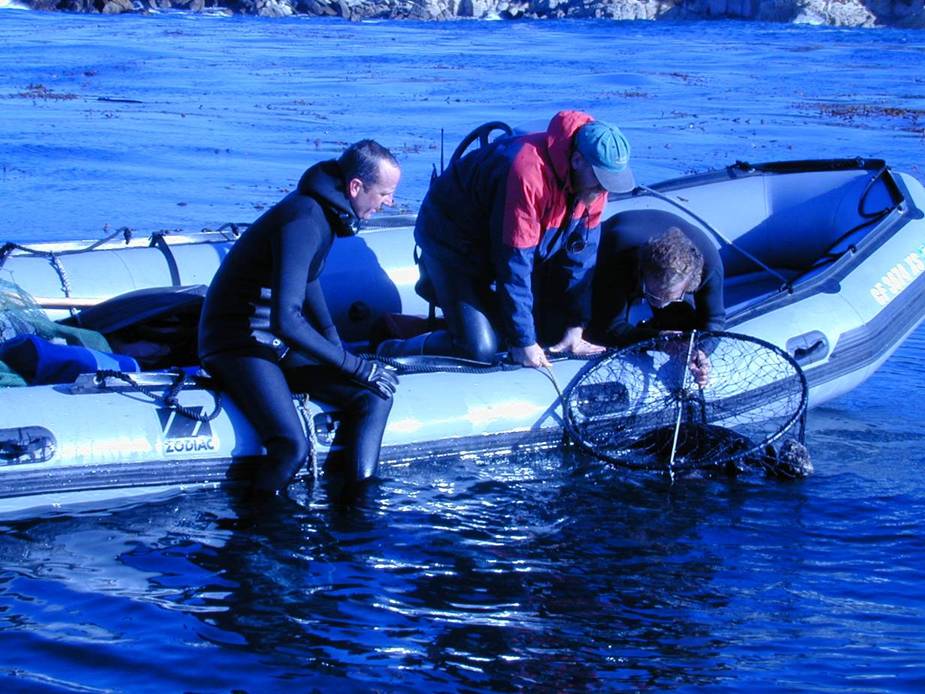
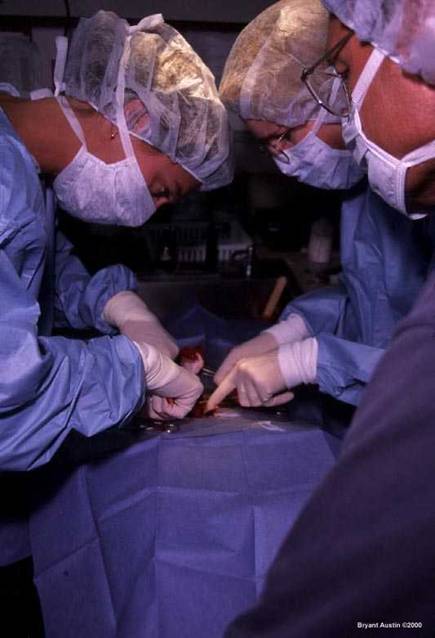
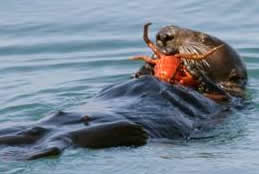
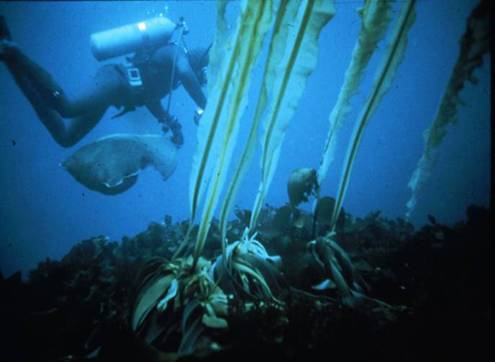
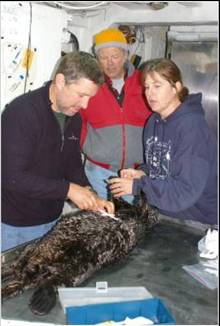
Comparative Analysis of Marine Ecosystem Organization How do sea otters impact near-shore marine food webs? |
|
 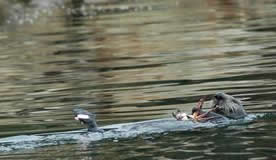 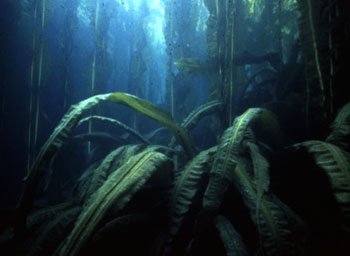 |
|
|
We are working to advance our understanding of the processes that structure coastal marine kelp forest ecosystems by exploring the interactive effects of three major drivers – oceanography, apex predators (e.g., sea otters), and commercial fishing – on the structural attributes, functional processes, and resiliency of the central and southern biogeographic regions of the California coast. We aim to investigate these factors by developing a series of food web models of varying detail and complexity to represent the dynamics of these systems. The extensive empirical information of our collaborators at PISCO, the USGS, USCS and UCSB provides us with a unique opportunity to develop these models to learn how spatiotemporal variation in fishing, apex predators, and oceanographic condition influence the structure, function, and resiliency of the services these systems provide. |
Contact Us: USGS Santa Cruz Field Station - 100 Shaffer Road - Center for Ocean Health - Room 251 - Santa Cruz, CA 95060 - 831 459-2357